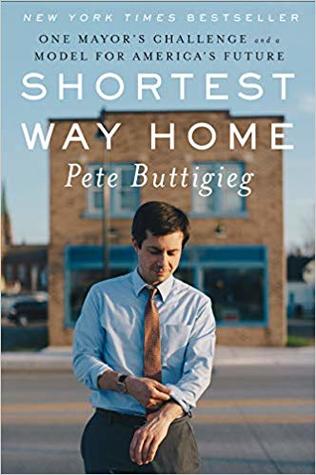More on this book
Community
Kindle Notes & Highlights
Read between
September 19 - October 9, 2019
The easy lesson to draw from this is that you must innovate to survive. But you could find a more nuanced moral of the story: that keeping up doesn’t always mean making something completely new. To survive, South Bend Watch wouldn’t have needed to start making radios or computers. They just needed to adapt a good thing they already had, and refine their business.
Scott Farrell liked this
The top priority of the terrorist—even more important than killing you—is to make himself your top priority. This is why protecting ourselves from terrorist violence is not enough to defeat terrorism, especially if we try to achieve safety in ways that elevate the importance of terrorists and wind up publicizing their causes. We all want to avoid being harmed—but if the cost of doing so is making the terrorist the thing you care about most, to the exclusion of the other things that matter in your society, then you have handed him exactly the kind of victory that makes terrorism such a frequent
...more
Kids in World War II saved tinfoil from gum wrappers for the war effort, women reused nylon stockings as many times as possible, and everyone then knew why they were being asked to pay much higher taxes. This time around, it seemed that the war effort was wholly outsourced to those few Americans who served in uniform. America tripped over itself to salute them, without seeming to consider the possibility that civilians, too, could accept some risk or pay some contribution into the cause of freedom.
Rawls became famous for creating a new definition of justice, which boils down to this: a society is fair if it looks like something we would design before knowing how we would come into the world.
learned to admire the theoretical elegance of the free market under perfect conditions. Then I began to learn about all of the situations in which those perfect conditions break down, and all of the ways markets get skewed in the real world. One calculus equation at a time, I came to understand in thorough mathematical detail why supply and demand cannot be expected to deliver fair prices or efficient outcomes in many situations.
Indeed, even the most orthodox economic theories showed that market failures were all but guaranteed to occur in situations, like health care and education delivery, where a seller has power over a buyer, or a buyer is seeking a service that can’t easily be assigned a dollar value, or the seller and the buyer have different levels of information about the product.
In 1956, a majority of the graduating classes of Stanford, Harvard, and Princeton joined the military. But in the decades that followed, the once-diverse makeup of our military shifted dramatically. Especially after Vietnam, America saw a growing share of service members coming from places like Mount Ayr and Creston in Iowa, or Fulton County in Indiana—and far fewer from places like Harvard.
CEREMONIES AND SYMBOLS ALSO SERVE to express the values of a community, and perhaps this is why I should not have been so surprised by the degree of controversy aroused by the naming of things. The renaming of a post office is sometimes used as a stock example of how Congress wastes its time when it could be doing something more important. But I learned through experience that the renaming of a street could be as significant as any piece of legislation.


